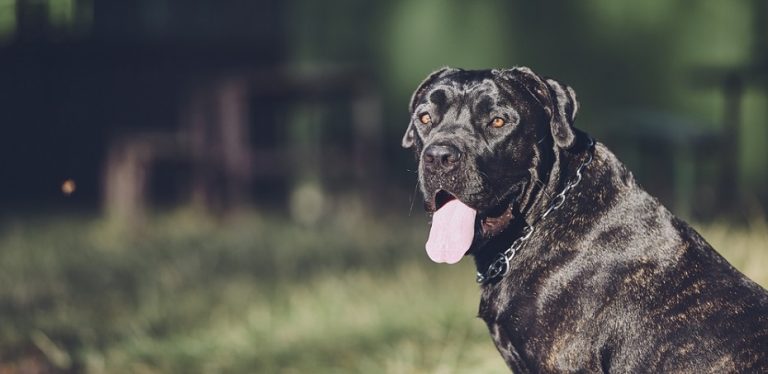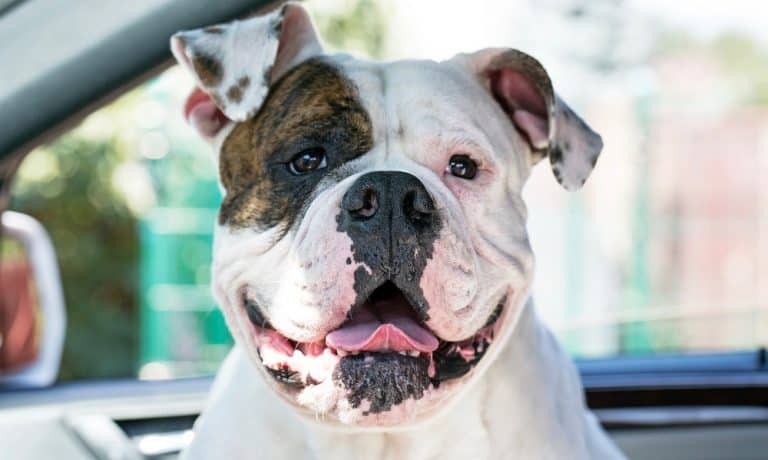Pitbull Lifespan – How Long Do Pitbulls Live
While Pitbulls have an unfortunate reputation around the world, with a loving and nurturing home, they can become wonderful companions.
If you have decided to adopt a Pitbull or are considering adoption, one of the most common questions that come up among dog owners is “what is the average Pitbull lifespan?”
Saying goodbye to a furry friend is always hard and devastating, so having an idea of what to expect right out of the gate will make you better prepared for how long you will get to enjoy your pup. The answer is unfortunately not straightforward, however.
There are a lot of variables that affect the lifespan of a Pitbull. These include how well he has been fed, the amount of exercise and training that he has received, and how often he has a visit to the vet.
With good care, you should be able to enjoy your Pitbull for a long time.
Pitbull Life Expectancy

So the ultimate question is: what is the average life expectancy of a Pitbull? On average, a Pitbull can live anywhere from 12 to 15 years, with the average lifespan being about 13 years.
Naturally, the length of their lives depends on a number of factors, including the Pitbull’s genetics and how well he is taken care of. That is why the range is so large.
They are a larger breed of dog, which means that they will not live as long as small dog breeds, but they should still have a good amount of life as long as they are able to remain healthy.
They are all and large muscular dogs and will need to have a good amount of exercise.
Another consideration is that Pitbull itself can mean a few different dog breeds. The American Staffordshire terrier, American Pitbull terrier, or the American Bully are often used interchangeably and will affect how long the dog’s life expectancy actually is.
How Can I Extend The Life Of My Pitbull
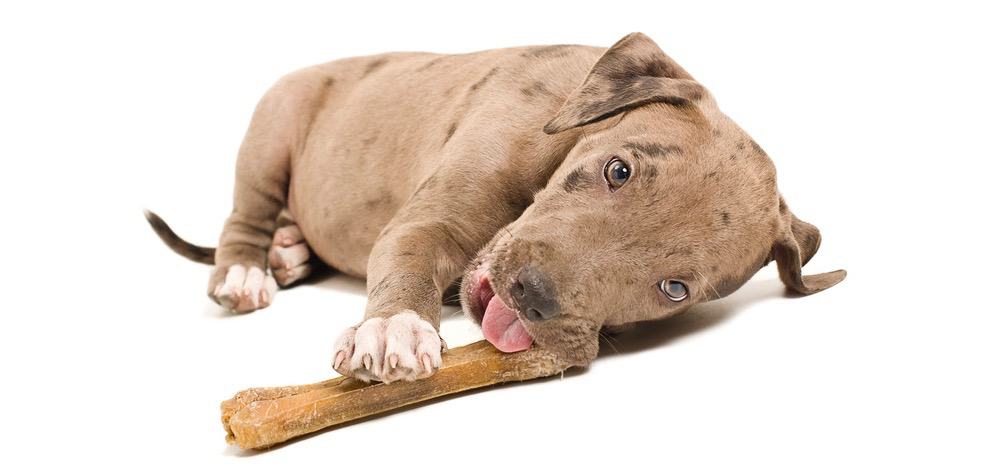
Feed Him Healthy Diet
The absolute best thing that you can do to extend the life of your Pitbull is to feed him the right food. There are so many different food varieties out there that it can be easy to just think that you should feed your dog something inexpensive and easy to find. Unfortunately, that is not a good idea.
Not all commercial dog foods are appropriate for Pitbulls. The first thing to do is to talk to your vet about what the recommended foods for Pitbulls are.
Many dog foods are made with filler ingredients that add calories, but have no real nutritional value. You will see the fillers listed as corn or meat-byproducts. Byproducts are the parts of an animal that humans won’t consume, so why would you feed them to your dog?
Look for dog foods that have a meat listed as the first ingredient. It will need to be real meat and not a byproduct.
While these foods are more expensive than foods that are loaded with fillers, they will extend the lifespan of your dog and ensure that he is living a healthy life and will remain as healthy as possible for as long as possible.
Exercise & Training
The second thing to be sure of to help increase the overall Pitbull lifespan is to give him plenty of exercise and good training.
Puppies do not need a lot in the way of guided exercise since they are still growing, but they do require early training to ensure that they are developing positive habits.
In general, Pitbulls have a lot of energy and will need to have a structured regimen of cardiovascular exercise so that their energy is channelled in a positive manner.
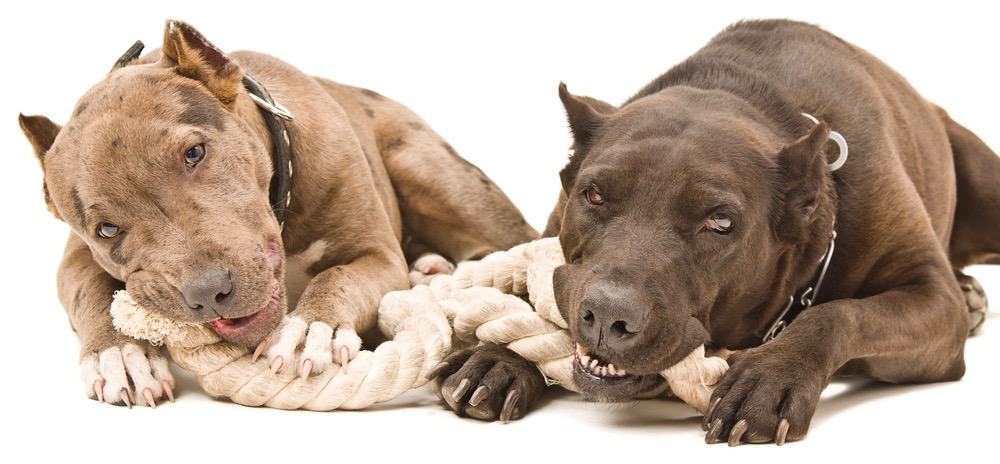
Due to the reputation that Pitbulls have and the fear that surrounds them, if your Pitbull does not have a healthy exercise regimen and training in place, he could find himself in a world of mischief and terrible trouble.
If you do not exercise your Pitbull and are not feeding him a good diet, he will definitely not have as long of a lifespan as he would if he were given the right amount of exercise and nutritious food.
Fortunately, even though they are brawny, they are easy to train and enjoy the routine of training. Their reputation may make you worry it will be harder to train them, but that is not the truth.
Visit The Vet Regularly
Regular vet visits are the another thing that you can do to ensure that your dog lives a long and healthy life. Typically, dogs should be taken to the vet annually to make sure that they are doing well.
Your vet will be able to check his weight, teeth, and listen to his heart to see how he is doing. Vets can also catch issues before they become worse, preventing ailments that might have shortened the life expectancy of your pup.
Your vet will also keep your dog updated on vaccinations and typical dog medications, like heartworm prevention and flea and tick repellent.
Since heartworm is present in many unexpected places, keeping your dog on a preventative medication will certainly extend his lifespan.
You vet might also have good food and exercise recommendations as well as any kind of supplements that might help extend your dog’s life and keep him healthier.
Brush Your Pitbull’s Teeth: Maybe one of the least pleasant tasks to do for your dog is to brush his teeth. Like all mammals, teeth can develop bacteria and get cavities.
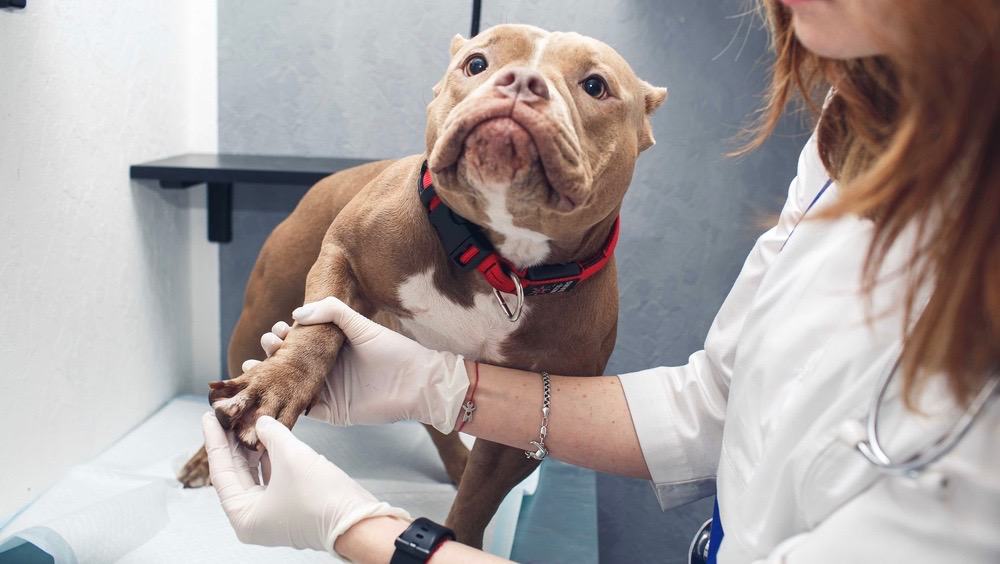
In dogs, this usually shows up as infected abscesses. The way that this will extend your dog’s lifespan is that dental abscesses are quite fatal. If left untreated, a dental infection can travel right to the brain, killing the dog instantly.
Just like with humans, keeping the bacteria from building on your dog’s teeth will help prevent dental abscesses and extend the life of your dog. Ideally, you should brush your dog’s teeth once a day.
Blue Nose vs Red Nose Pitbull Lifespan
If you have seen mention of blue nose and red nose Pitbulls, you might be wondering what the difference is. Between the two dogs, the biggest difference is their colouring.
The blue nose Pitbull is a grey colour, while the red nose Pitbull is a more auburn colour. Neither dog is recognized by the AKC as a breed.
Fortunately, the difference in their colour does not impact any other aspect of the dogs. They still have the same health issues, temperament, and lifespan. They might be different colours, but the breed is the same and prone to suffering the same lifespan.
They both suffer from heart disease, joint issues, and cataracts. The only difference is that the blue nose Pitbulls might have more sensitive skin and they are more prone to hair loss, but these factors will not affect the lifespan of the breed. Blue nose Pitbulls also suffer more vision issues.
Overweight Pitbulls Live Shorter Lives
Just like with humans, overweight Pitbulls live shorter lives than Pitbulls who are living at a healthy weight.
While dogs might not suffer from all of the same weight-related issues that humans do, they still have a slew of issues to deal with as overweight dogs, much of which will shorten their lifespan.
One of the most dangerous elements to an overweight Pitbull is that there is a lot of extra weight put on their joints and their bones. This can cause mobility issues, making it much harder to drop any excess weight and making it harder for the dog to get around.

Additionally, you will run into other health issues including heart disease, which will certainly shorten the lifespan of your dog.
The best thing to do is to keep him well-feed and give him plenty of exercise to keep him at a healthy weight. Talk to your vet if you are concerned at all.
Do Mixed Pitbulls Live Longer Than Purebred Ones?
Another common question that is asked is whether a mixed breed Pitbull will live longer than a purebred Pitbull.
It has been shown with all breeds of dogs that mixed breeds have a tendency to live slightly longer than purebred dogs do. The difference is not that great when it comes to a Pitbull, however.
The average lifespan of a mixed Pitbull is only a fraction of a year longer than it is with a purebred Pitbull. They might have less of a chance of developing some of the purebred health issues, but they also might have the health issues that are common with whatever breed has been mixed with your Pitbull.
Regardless of mixed or purebred, both types of dogs will still need to see the vet once a year, be fed healthy food, and receive plenty of exercise to get the most out of their life. The lifespan difference between the two is negligible.
Pitbull Age Groups Explained
Puppy: Your Pitbull will be considered a puppy up until the age of about 9 to 12 months. This is an important time period where the puppy will be learning about the world and how to behave. This is a good period to have your dog spayed or neutered as well.
Juvenile & Teenager: Your Pitbull is considered a teenager up to 2 years of age. Your little puppy will develop straight into a dog, so they will continue to grow for a while, but they will quickly become adults. Their habits will begin to show through and any training must be done by the time that you reach this age.
Adult: Your Pitbull will be considered an adult up to 10 years old. From 2 years to 10 years, your Pitbull will be in his prime and right up through middle age. They will slow down a little as they age, but will maintain a sense of puppyhood whenever they play.
Senior: When your Pitbull has gone beyond 10 years of age, he is officially considered a senior. During these golden years, your dog will have slowed down a lot and be a lot less active. Old age disease might begin to appear, making routine vet checkups more important than ever before.
Does Neutering & Spaying Affect Pitbull Life Expectancy
A common thought for dogs of all breeds is whether spaying or neutering your dog will extend his lifespan. The truth is that it definitely can.
For one, when your dog has been spayed or neutered, you will not need to worry about him running off to find a dog to mate with.
Pitbulls running loose can cause a lot of distress and they could fall victim to bystanders who think that they are a threat. They also could easily be hit by a car if you are near a road.
There has also been evidence that neutering your Pitbull can reduce the risk of developing certain types of cancers.
Pitbull Common Health Issues That Can Affect Their Lifespan
All dog breeds have a tendency toward some ailments or health issues and the Pitbull is no exception. Some of the common health concerns that you might face include:
Heart disease: Heart disease is often an inherited condition that Pitbulls are prone to getting. The type that specifically affects Pitbulls is aortic stenosis. Unfortunately, the disease does not show any symptoms, so the only person who will really be able to spot an issue is your vet.
Joint issues: Joint issues like hip dysplasia or knee injuries are common among Pitbulls. Your vet should be able to help guide you through this.
Allergies: Pitbulls are more prone to allergies than other dog breeds are. They are sensitive to pollen, grass, and even ticks. There is a tendency toward food allergies as well, including grains.
Cataracts: Cataracts with a Pitbull can be inherited or simply developed over time. Your vet should be checking your dog’s eyes at every visit. If needed, cataracts can be removed through surgery.
Sensitive Skin: They can get skin cancer, tumours, and suffer hair loss. It is a good idea to keep your dog groomed and keep him in the shade to prevent skin cancer.
Pitbull Lifespan FAQs

What Is The Longest Living Pitbull
The longest living Pitbull ever recorded was a dog named Max from Louisiana. Max lived to 26 years old. It has been recorded that Pitbulls can live to 20 years of age, but it is very rare and there have not been any other dogs recorded to have lived as long as Max.
Is The Average Pitbull Lifespan Increasing?
Looking at the age range of the average Pitbull, it is easy to wonder whether the breed is living longer now than they have in the past.
They are not increasing in lifespan, but more dog owners are taking care of them well, preventing them from being destroyed.
Indoor vs Outdoor Pitbulls
It has been shown that indoor Pitbulls live longer than outdoor Pitbulls. When a Pitbull is exposed to the elements, he runs a risk of developing skin cancer among other issues.
An indoor Pitbull also has the joy of being a member of the family and will be better taken care of, increasing his lifespan.
Do Pitbulls Live Longer Than American Bulldogs?
Even though they are often put together, American bulldogs and Pitbulls are not the same breed.
In general, Pitbulls live longer than American bulldogs, because they are a smaller breed. American bulldogs live 10 to 12 years on average, when Pitbulls routinely live up to 15 years.
Final Words
If you are considering adopting a Pitbull, you need to make sure that you are going to be giving your dog the very best life possible. This means that you need to take proper care of your pup by feeding him good food and giving him plenty of exercise.
Do not adopt a Pitbull if you are hoping to have a guard dog. The breed is kind and loving when raised right and will make an excellent addition to any loving family. With love, care, and lots of good training, you can expect your Pitbull to have a nice, long life.

